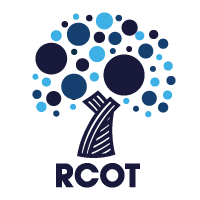Peer review guidelines
In order to determine whether or not an article is accepted for publication in the Revista Colombiana de Ortopedia y Traumatología, all articles, except for editorials and letters to the editor, must be reviewed by academic peers. Consequently, peer reviewers must evaluate, based on their experience, not only the formal aspects but also the methodological components of the article, the relevance of its content, and the importance of the findings presented to the scientific community, particularly in the field of orthopedics and traumatology.
The Journal adheres to the guidelines and recommendations on the peer review process outlined in subsections II-B.1.b, II-C.2.c, and II-C.3 of the Recommendations for the Conduct, Reporting, Editing, and Publication of Scholarly Work in Medical Journals issued by the International Committee of Journal Editors (ICJME), section 5 of the Guidelines on Good Publication Practice issued by the Committee on Publication Ethics (COPE), and point 4 of the WAME Recommendations on Chatbots and Generative Artificial Intelligence in Relation to Scholarly Publications.
The Journal uses a double-blind peer review system, that is, the identity of authors and reviewers are concealed from each other. To this end, all details identifying the authors are removed from the manuscript submitted to the peer reviewers, and the details of the expert peers are also removed from the evaluation form that is returned to the authors. If the peer reviewers suspect that they may be acquainted with one or more of the authors of the article, they must notify the Journal for confirmation. To avoid any conflicts of interest or other unethical behavior, peers must refrain from doing the evaluation if they are indeed acquainted with the authors.
An Internet search of professional experts in a discipline or topic is conducted by the editorial team of the Journal, using Google Scholar and other academic article databases. Experts are selected based on their academic qualifications (specialty, subspecialty, fellowship, and MSc and PhD degrees) and research accomplishments (publication of biomedical articles on the topic within the past 5 years).
Subsequently, the selected peers will be invited to participate in the article evaluation process. These invites are sent only through the official e-mail of the Rev. Colomb. Ortop. Traumatol. (rcot@sccot.org.co). They contain the article to be evaluated (“blind review” version: without author data or information that allows inferring who the authors are), the link to our Authors Guidelines, and the evaluation form that is specific to the article category. The evaluation forms were developed for each type of article in accordance with our Authors Guidelines and are available at:
- Research Article Evaluation Form
- Case Report Evaluation Form
- Systematic Reviews and/or Meta-Analysis Evaluation Form
- Reflection Article Evaluation Form
- Current Concepts Evaluation Form
Peer reviewers who agree to participate in this process must complete all items of the evaluation form and report their decision (accept, accept after major revisions, accept after minor revisions, or rejected) at the end of the evaluation form. Reviewers have the option to provide feedback on the article, either directly on the manuscript and/or the evaluation form. Once the evaluation is completed, peer reviewers must submit the evaluation documents (evaluation form and/or article with comments) via e-mail. Peer reviewers will have 20 calendar days to submit their evaluation, although they may request an extension.
In accordance with recommendation 4 of the WAME Recommendations on Chatbots and Generative Artificial Intelligence in Relation to Scholarly Publications, peer reviewers must report the use of chatbots and other artificial intelligence-powered technologies when reviewing manuscripts and evaluating and generating correspondence. Peers may include this statement in section F (Additional Comments) of the evaluation form and/or in the e-mail the evaluation is sent.
Peers participate ad honorem and, once the evaluation is received, they will be given a certification for their work. Likewise, their names will appear on our Journal's website (see Peer reviewers per volume). The contributions of the expert academic peers significantly improve the quality of the articles published in the Journal and are very valuable, as their evaluations are used to reject or accept the articles submitted to the Journal.
The information requested to peer reviewers in the evaluation form (affiliation, academic degrees, areas of expertise, and links to profiles in academic networks) is used solely for the purpose of issuing the certificate of participation and systematizing the evaluation in our databases and the Journal's OJS platform. Our Personal Data Processing Policy governs how we handle this data.



